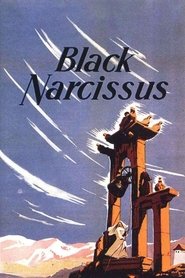You're sure there's no question you're dying to ask me?
One thing Black Narcissus captures perfectly is how the British have internalised the idea that geography maketh the people. The British self-perception of being an exceptional people (with a corresponding disinterest in the culture of others) is felt to be a natural extension of their status as an island nation stretching back to the beginning of time in some mythical way. Hence it should be no great surprise that Black Narcissus posits the Himalayas as a place with its own kind of sentient presence, and how it is the obscure psychology of the landscape, along with "the air" and the incessant wind, that drives them all back home rather than the fallacy of their ideological project, their evangelism, their lack of real integration with the locals, or simply their organisational arrogance inherent in that they planted a bunch of Japanese Peonies when they should have planted potatoes.
Yes, I understand that the film does contain something of a critique against the colonial story of interlopers coming to 'better' the natives — who are referred to, disarmingly affectionately, as "children" a number of times. But it spends just so much of its runtime presenting us with basically the opposite worldview and even suggests the British are the real victims at the end. Still, there are some very interesting and thought-provoking moments. One which I had forgotten from my first viewing was the implied sexuality of fox-hunting. This was a bit of an eye-opener for me, hinting at why the objections to the ban in the early 2000s (mostly claims of upward class prejudice and not on sexual grounds, obviously) always felt like there was some other, unstated reason.
It's funny how much David Farrar's entrance on his absurdly small donkey looms large in people's memories of the film, and it caused more than a chuckle in the cinema on this viewing as well. It is a curiously effective choice, though, as it both undercuts and adds depth to his character's otherwise somewhat shallow role in the film as the only handsome, civilised and virile (i.e. white?) man in the village. The use of the donkey could also be seen as a British-tipped riposte to the self-serious Westerns coming out of Hollywood — needless to say, John Wayne would make his first arrival perched in perfect control of some fine stallion. (Consider that Black Narcissus is itself something of a Western in that it is a film about an ungovernable, dangerous and unknowable frontier.) All in all, a risky gamble for The Archers to have taken, I think, especially given it could easily be misread as 'Jesus entering Jerusalem' given the presence of the nuns or merely crude farce.
All that being said, I'd dearly love to love this film a lot more, especially given those beautiful warm red fire tones at dusk and dawn. But I'm just constantly kept at a distance by all the constant orientalism, especially as evinced in the secondary characters such as Ayah, the Young General and Jean Simmons' turn in blackface as a clichéd 'exotic temptress' straight out of Alladin or Borodin's In the Steppes of Central Asia. Perhaps an edit could be made that tones all that down... Still, there is something more a little off about the erotomania at the heart of the story here — give me Renoir's The River (1951) any day.
[Sabu] presents himself as little more than an empty vessel to be filled with superior Western learning. His eagerness to learn is played for comedy, with his unusual syntax and ingratiating zeal. There is an invitation to be charmed by this enthusiastic man-boy, but it comes edged with ridicule. It was quite a shock to see this representation of someone who seemed strangely familiar from family lore. As the film continued, I could sense myself shrinking in my seat whenever Sabu reappeared on screen. There seemed to be something fallacious about his conduct around the nuns and his apparent admiration even for the dissolute Mr Dean. His character repeatedly denied his own selfhood, and the actor seemed damningly complicit in this portrayal. Our first encounter was a profound disappointment. Could this curiously sexless figure, cloying and obsequious, really be the hero of my father's tales of the famed star from Mysore?[…]
The entire film was shot in England[.] Tricks and contradictions abound in its construction. A film steeped in Orientalist notions and imperial fantasies also lays bare the instability of the colonial enterprise and the barrenness of ideas of superior Western learning and evangelism. Seen through one prism, the characters can seem false and artificial; through another, complex harbingers of uncomfortable truths. Frequently the film obscures any sense f realism and yet also manages to dispel one or two long cherished myths. Any certainty about the film shifts like the hues of the walls of the palace at Mopu. Perhaps the only true certainty is that I will watch the film again.
— Mahesh Rao (The Cinema of Powell and Pressburger)
Synopsis: A group of Anglican nuns, led by Sister Clodagh, are sent to a mountain in the Himalayas. The climate in the region is hostile and the nuns are housed in an odd old palace. They work to establish a school and a hospital, but slowly their focus shifts. Sister Ruth falls for a government worker, Mr. Dean, and begins to question her vow of celibacy. As Sister Ruth obsesses over Mr. Dean, Sister Clodagh becomes immersed in her own memories of love.

